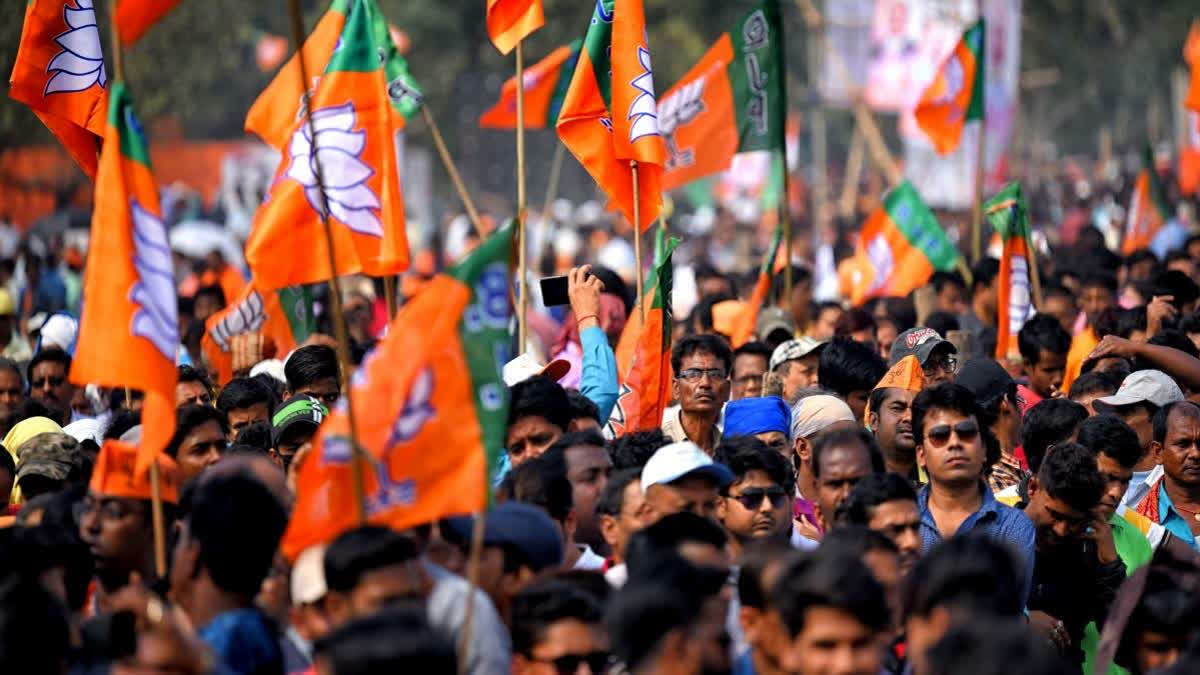New Delhi: The Delhi Assembly elections are just around the corner, with polling scheduled for February 5 and results to be declared on February 8.
The BJP which has been out of power for more than two decades has launched an aggressive campaign to remove the Aam Aadmi Party. To achieve this, the BJP is focusing on slum dwellers and Dalit vote banks, who play a crucial role in the assembly elections.
Delhi has 70 assembly seats, with 12 reserved for Scheduled Castes, who constitute more than 20% of the voters.
Earlier, the Congress party had strong support from Dalits and slum dwellers in Delhi. However, after Arvind Kejriwal’s entry, they shifted their loyalty to Aam Aadmi Party (AAP). This was mainly due to the Aam Aadmi Party’s populist schemes. In the last assembly elections, the AAP won all 12 reserved seats.
BJP Eyes Dalit Votes
In Delhi's political circle, there is a popular saying that the party which wins the majority of reserved seats forms the government. This is evident with the way political parties are trying to woo Dalit voters.
The BJP is trying to win over Dalit voters by sending workers to connect with them in areas where they live. They've also started a special program to reach out to Dalits and people living in slum areas.
Mohanlal Giraha, President of Delhi BJP SC Morcha, is confident that Dalit voters and people living in slum areas will support the BJP this time. He says people have seen how the AAP and Congress have governed, and now they'll choose the BJP. He said that the party kept this factor in mind while distributing tickets
Arvind Kejriwal and BJP's Parvesh Verma launched their campaign from the Valmiki Temple
Before filing his nomination for the assembly elections, Arvind Kejriwal visited the Valmiki Temple in Mandir Marg. This move was seen as his effort to win over the Dalit voters. He also visited Hanuman Temple in Connaught Place where he met devotees.
Former BJP MP Parvesh Verma who is contesting from the New Delhi seat also visited Valmiki Temple before filing his nomination. During his visit, he met members from Dalit communities. However, his meeting stoked a controversy after he distributed shoes among the women. This prompted the AAP to accuse him of violating the model code of conduct. The congress is also in the fray, with Sandeep Dikshit contesting from the same seat. This has set the stage for a triangular contest between AAP, BJP and Congress.
According to political analyst Navin Gautam, all major political parties including AAP, Congress and BJP give priority to winning candidates from the 12 reserved seats, offering them key positions in the government and the party after winning elections.
Dalit Leaders Question Kejriwal's populist schemes
According to veteran Dalit leader Udit Raj, the Congress carefully planned the allocation of seats in SC reserved constituencies. Sharing his experience, he said that it was due to reservation he got a chance to serve as an IRS officer and later became an MP, which enabled him to serve people.
He used the occasion to accuse the AAP government of exploiting Dr Bhim Rao Ambedkar’s images and legacy to win Dalit votes. He took to social media and questioned the Delhi government’s announcement of a salary scheme for temple and Gurudwara priests while excluding Buddhist monks and priests from other communities.
He also criticized the AAP government for the sudden resignation of Dr Rajendra Pal Gautam, the former social welfare minister.
The Congress party was in power from 1998 to 2008, with Sheila Dikshit as Chief Minister for three consecutive terms. Arvind Kejriwal first became the Chief Minister in 2013, but his government couldn’t last more than 49 days.
Aam Aadmi Party formed the government again in 2015 and since then his party has remained in power. In the 2015 and 2020 assembly elections, the AAP won the reserved seats.
However, Arvind Kejriwal had to step down on September 17, 2024 days after getting bail in a corruption case. On the next day, AAP leader Atishi was sworn in as Chief Minister of Delhi, raising the political temperature.
